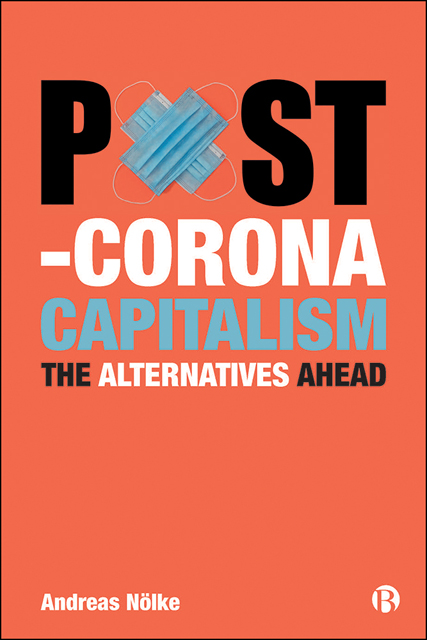Book contents
- Frontmatter
- Dedication
- Contents
- List of Abbreviations
- Acknowledgements
- Preface
- 1 Introduction: Confronting a Multidimensional Crisis of Capitalism
- Part I Capitalism and Society
- Part II Domestic Institutions of Capitalism on the Demand Side
- Part III Domestic Institutions of Capitalism on the Supply Side
- Part IV The International Institutions of Capitalism
- Part V Anthropocene Capitalism
- Part VI Geo-economic Shifts in Global Capitalism
- Part VII Ideologies in Contemporary Capitalism
- References
- Index
30 - Authoritarian or Democratic Capitalism?
Published online by Cambridge University Press: 13 October 2022
- Frontmatter
- Dedication
- Contents
- List of Abbreviations
- Acknowledgements
- Preface
- 1 Introduction: Confronting a Multidimensional Crisis of Capitalism
- Part I Capitalism and Society
- Part II Domestic Institutions of Capitalism on the Demand Side
- Part III Domestic Institutions of Capitalism on the Supply Side
- Part IV The International Institutions of Capitalism
- Part V Anthropocene Capitalism
- Part VI Geo-economic Shifts in Global Capitalism
- Part VII Ideologies in Contemporary Capitalism
- References
- Index
Summary
From the start, the coronavirus crisis was a propaganda contest between democratic and authoritarian capitalist regimes: who is better equipped to fight against the crisis? Authoritarian countries such as China and Singapore were lauded for their draconian and successful measures against the spreading of the crisis, but also detested for their lack of transparency. Later in the crisis, other authoritarian countries such as Russia, in contrast, suffered more from infections than democratic ones. Which type of capitalism will win the propaganda contest?
Regime types in Comparative Political Economy
Whereas regime types do not matter much in International Political Economy, they are a very established topic in Comparative Political Economy. A core question is whether capitalism and democracy are closely connected. Among the most well-known claims is that liberal capitalism and democracy are the ‘end of history’ (Fukuyama, 1992). While this claim has been cast into doubt via the rise of China, important recent scholarship still claims that capitalism and democracy mutually support each other, particularly during turbulent times (Iversen and Soskice, 2019). Even during a situation of crisis, democracy reinforces capitalism and capitalist economies remain democratic, the argument goes. While it is based on comprehensive historical evidence on developments in the OECD, it may be less convincing with regard to the current populist backlash. Other perspectives in Comparative Political Economy rather assume that the marriage between capitalism and democracy is nearing its end (Streeck, 2016). Moreover, all of these works focus on the OECD. Given that the centre of capitalism increasingly moves to East and South Asia and that these regions are not known for a prominent role in liberal democracy, we may wonder whether the assumption of a close connection between capitalism and democracy holds globally and in the near future.
Comparisons of authoritarian and democratic handling of the crisis
During the last decades, authoritarian capitalism increasingly has contested the superiority of democratic capitalism that had been claimed, for instance, by Francis Fukuyama after the end of the Cold War. First, China and Singapore, but later also countries such as Hungary, Russia and Turkey at least temporarily argue to be able to provide a superior alternative to democratic capitalism.
- Type
- Chapter
- Information
- Post-Corona CapitalismThe Alternatives Ahead, pp. 189 - 193Publisher: Bristol University PressPrint publication year: 2022



